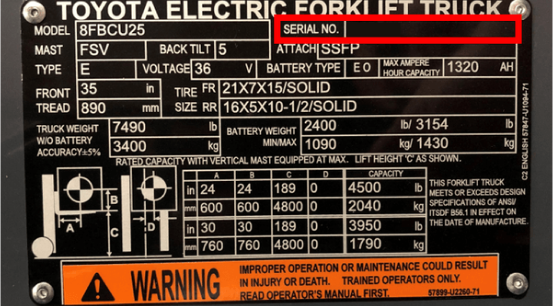Reddy Ice Customer Story
Ice at the Reddy
Toyota forklifts assure ice manufacturing and distribution stays on pace at the nation’s largest commercial ice manufacturer.
If you ever get a drink on a flight originating out of Denver International Airport, chances are your drink will be colder because of Reddy Ice.
Reddy Ice is the largest manufacturer of commercial ice in the United States. The company’s manufacturing and distribution center in Denver is just one of 68 facilities that it operates across 32 states. The Denver facility boasts a manufacturing capacity of 400 tons. It produces bags of cubed ice in sizes ranging from five to 20 pounds as well as ice sold in 10-pound blocks.
Besides the airlines, Reddy Ice is distributed to grocery stores, convenience stores, food-service companies and other users of cubed ice. For instance, the company stocks many of the outdoor coolers of bagged ice found at leading grocery and convenience stores. The Denver operation serves ice needs throughout Colorado, as well as parts of Wyoming and New Mexico.

CUBED OUT
Moving heavy loads of frozen water is a task Reddy Ice assigns to Toyota’s line of electric forklifts and electric pallet jacks. These durable vehicles are well suited to working in the frigid temperatures of the freezer and the just slightly warmer dock areas. Outside of product performance, another primary reason Reddy Ice chose Toyota forklifts is Toyota’s extensive and erienced dealer network. Toyota forklift dealers provide consistently high levels of service and maintenance for all of Reddy Ice’s locations.
“We chose Toyota because of their vast distribution. They have more than 200 locations nationwide that really prove to fit better for us than other forklift manufacturers,” says Joey Tasher, market manager at Reddy Ice. “We are converting all of our units to Toyota.”
Reddy Ice is headquartered in Dallas, Texas, and works directly with Shoppa’s Material Handling, a Toyota forklift dealer in Texas, to coordinate its fleet nationwide. Shoppa’s then works with the local Toyota dealer to provide service and continuous after-sales support. “In the Reddy Ice operation, there are about 800 pieces of material handling equipment,” explains Jason Bratton, director of fleet services at Shoppa’s. “Putting together a national program with a supplier who could handle their needs was a critical element to a successful Fleet Management Program. Shoppa’s and Toyota developed a plan focused on lowering the total cost of ownership through a standardized equipment replacement schedule with structured leases through Toyota’s partner, Toyota Commercial Finance.”
FREEZE PLAY
Manufacturing ice at the 50,000-square-foot Denver facility starts with city water. The water is sent through a water softener, a carbon filter then through a reverse osmosis process. Finally, the water is sent through a UV filter and frozen to create ice. Tens of thousands of cubes are then cut and deposited into a huge storage bin within the large freezer vault that keeps ice at a chilly 18 degrees Fahrenheit.
When needed, the ice cubes are automatically conveyed to bagging machines. The bags are palletized and a Toyota forklift places the pallet onto a small conveyor for transport back into the vault for storage. A portable door opens in the vault wall so that another Toyota forklift working inside the freezer can retrieve the pallet from the conveyor for floor storage. When the ice is needed for orders, Toyota forklifts gather the pallets from the vault for loading directly onto reefer trailers and delivery trucks. Two of the forklifts in Denver are equipped with Cascade Single-Double fork attachments that allow each truck to pick up, transport and load two pallets side-by-side. This saves valuable dock time. Several Toyota electric pallet jacks are also able to move two pallets on their single set of forks and are also used to load outbound trucks. In many cases, the electric pallet jacks also ride along on the trucks to handle unloading duties at customer stops.
Toyota has proved to be a trusted partner for Reddy Ice. “Toyota trucks are very reliable,” says Tasher. “They have reacted very well to the cold environment as well as to the effects of going in and out of the freezer. The products are very strong and provide us the ability to really complete our job in an effective manner.”


